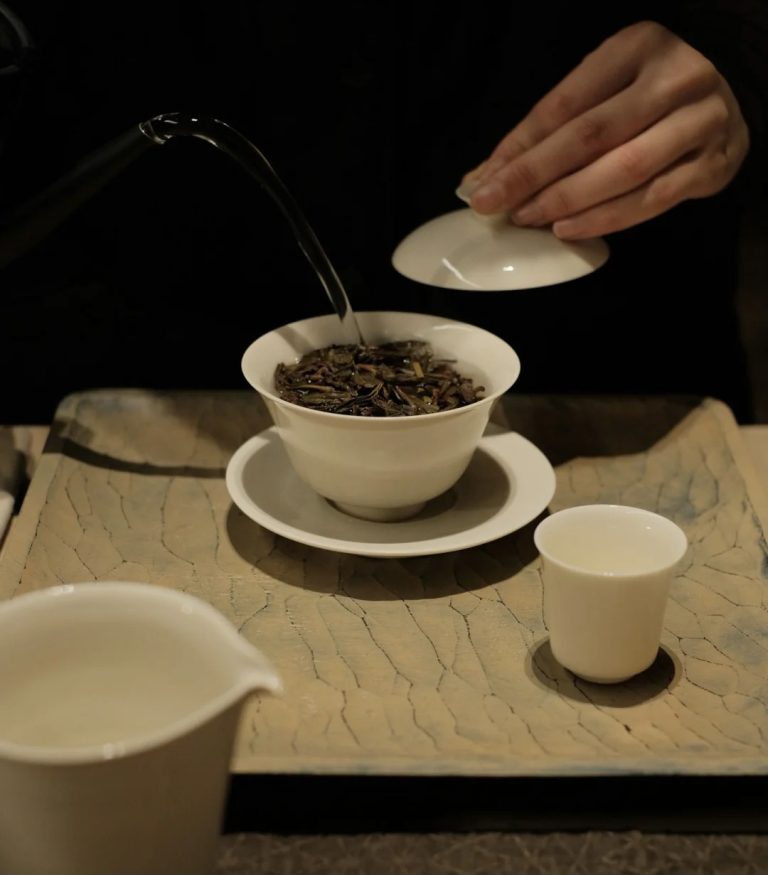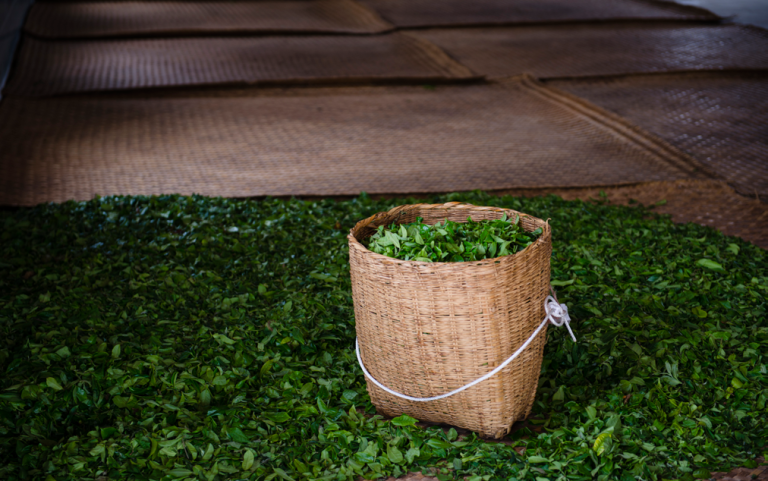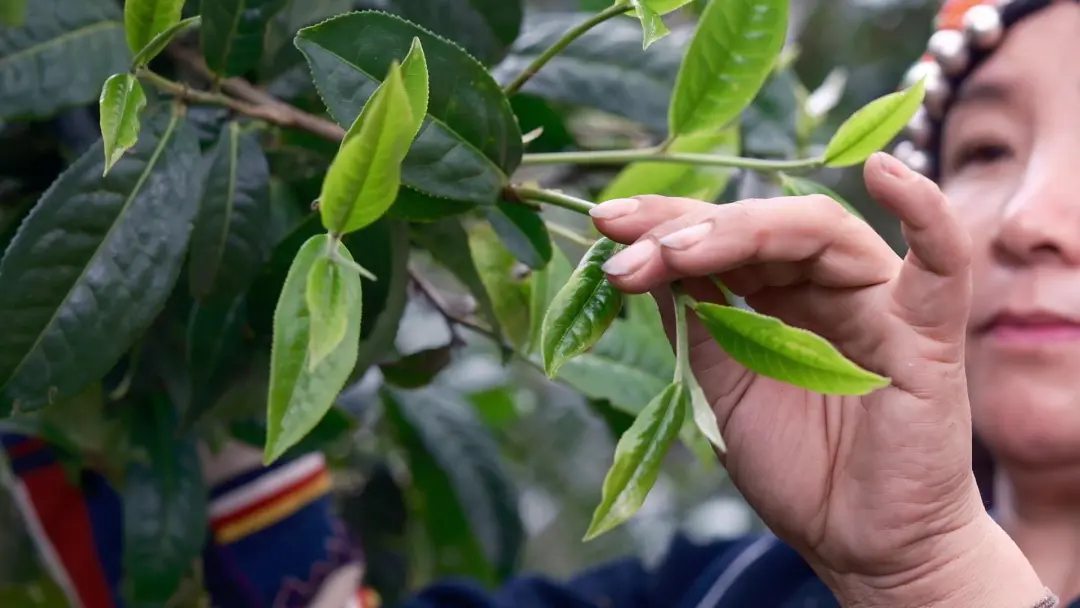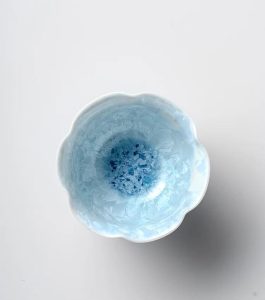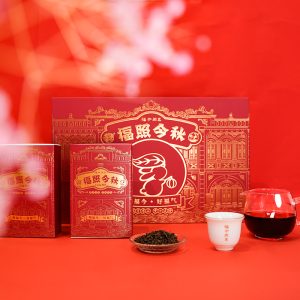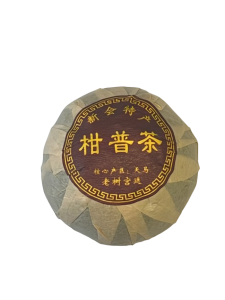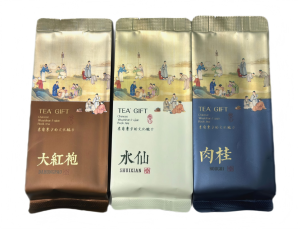
Wuyi Rock Tea (武夷岩茶) is a renowned type of oolong tea grown in the Wuyi Mountains of Fujian province. Famous for its distinctive, mineral-rich flavor, Wuyi Rock Tea is made up of various cultivars, each with unique characteristics. Among the most popular are Rou Gui (肉桂), Shui Xian (水仙), and Da Hong Pao (大红袍). These three teas are often considered the backbone of Wuyi Rock Tea, but many tea drinkers are unsure how to distinguish them.
In this guide, we’ll closely examine what sets these three teas apart. From flavor profiles to brewing tips, we’ll help you understand their unique qualities so you can find your perfect Wuyi tea. Ready to explore the fascinating world of Wuyi Rock Tea? Let’s dive in!
What Are Wuyi Rock Teas?
Wuyi Rock Tea comes from the rocky, mineral-rich terrain of the Wuyi Mountains, which is renowned for producing some of the finest oolong teas in China. The distinct “rock flavor” (岩韵), often described as a mineral or stone-like taste, is one of the defining features of these teas. Among the most prominent cultivars are Rou Gui, Shui Xian, and Da Hong Pao, each offering a different take on the Wuyi terroir.
While the three teas share the same rocky origin, their distinct differences in aroma, flavor, and texture make them uniquely appealing to different palates. Let’s look more closely at each of them.
Rou Gui (肉桂) – The Bold and Spicy One

Aroma: Rou Gui is most famous for its spicy, cinnamon-like aroma, which is often described as “cinnamon bark” or “spiced wood.” The scent is bold and fragrant, making it easy to identify even before you taste it. The fragrance also carries underlying sweet notes, reminiscent of warm baked goods.
Flavor: Rou Gui’s flavor profile is equally bold. The spicy, cinnamon-like taste is the dominant flavor, and you’ll also notice a roasted sweetness on the palate. This tea has a rich mouthfeel and a slightly astringent edge that adds to its intensity. After drinking, the flavor lingers with a warm, comforting sensation, often referred to as the “cinnamon finish.”
Appearance: Rou Gui leaves are tightly rolled and dark in color, with a greenish-brown hue. The liquor brewed from Rou Gui is typically amber or red, a reflection of its intense flavor.
Brewing Tip: Rou Gui is forgiving in its brewing method. It can withstand multiple infusions and will evolve in flavor with each brew. Start with around 90-100℃ water, and steep for 3-4 minutes.
Ideal For: Tea drinkers who enjoy bold, spicy teas or those looking for a tea with a warming, cinnamon-like aroma will find Rou Gui a perfect fit.
Shui Xian (水仙) – The Floral and Smooth Choice

Aroma: Shui Xian is known for its delicate, floral aroma, reminiscent of orchids or honeysuckle. Unlike the bold spice of Rou Gui, Shui Xian offers a much lighter and sweeter fragrance that is both calming and inviting.
Flavor: Shui Xian is known for its smooth and refined flavor. The taste is floral and sweet, with light fruitiness often compared to apples or stone fruits. It is much gentler than Rou Gui, with a mellow mouthfeel that’s pleasing to those who prefer lighter teas.
Appearance: The dry leaves of Shui Xian are typically long and slender, dark green-brown with slight twists. The liquor brewed from Shui Xian is usually golden yellow or amber.
Brewing Tip: Narcissus also requires higher temperature water (90-100°C) to maintain its delicate aroma. As it is brewed more often, the flavor becomes lighter, but the clear aroma is something else.
Ideal For: Shui Xian is perfect for tea lovers who enjoy floral, smooth teas with a delicate taste. It’s a great choice for afternoon tea or when you want a tea that’s not too overpowering.
Da Hong Pao (大红袍) – The Balanced and Complex King

Aroma: Da Hong Pao is known for its complex and roasted aroma, which is a mix of earthy, toasty notes with subtle floral sweetness. The fragrance is deep and aromatic, with hints of roasted nuts and freshly baked bread.
Flavor: The taste of Da Hong Pao is full-bodied and balanced, with a rich, roasted flavor paired with floral and fruity undertones. The flavor is complex and evolves as you brew it, with a smooth, mineral finish that lingers on the palate.
Appearance: Da Hong Pao leaves are large and twisted, dark in color with a slight sheen due to the roasting process. The liquor is a rich, amber, or coppery red that reflects its complexity.
Brewing Tip: Da Hong Pao should be brewed with boiling water (around 95-100°C or 203-212°F) to bring out its full flavor. Start with a shorter steep time (30-45 seconds) for the first brew, and increase the time for subsequent infusions.
Ideal For: Da Hong Pao is best suited for those who enjoy complex, well-balanced teas. If you’re looking for a tea with a combination of roasted richness and floral sweetness, Da Hong Pao is the tea for you.
How to Tell Them Apart
The best way to tell Rou Gui, Shui Xian, and Da Hong Pao apart is by their distinct aromas and flavors:
- Rou Gui: Bold, spicy with a cinnamon-like aroma. The flavor is rich and full-bodied with a slight astringency.
- Shui Xian: Floral, sweet, and smooth, with an elegant and delicate profile that lacks the boldness of Rou Gui.
- Da Hong Pao: Complex, with a combination of roasted, earthy flavors and floral sweetness, offering a balance of rich and delicate notes.
Comparing Wuyi Rock Tea to Other Oolong Varieties
Wuyi Rock Tea is just one part of the vast world of oolong tea, with each variety offering something unique. For example, while Rou Gui, Shui Xian, and Da Hong Pao represent the Wuyi terroir, oolong tea is also produced in other regions of China, each with its own characteristics. If you’re interested in exploring other regional variations, such as those from the Fujian province, you might want to check out this article on Min Nan vs Min Bei Oolong Tea: What’s the Difference?
It provides a detailed comparison of two major categories of oolong tea, helping you understand the regional distinctions that influence flavor, aroma, and processing methods. It’s a great resource for anyone looking to expand their knowledge beyond Wuyi Rock Tea.
Quick Summary
| Tea | Aroma | Flavor Profile | Appearance | Best For |
|---|---|---|---|---|
| Rou Gui | Spicy, cinnamon-like | Bold, warming, slightly astringent | Dark green-brown, tightly curled | Bold tea lovers who enjoy intense, spicy flavors |
| Shui Xian | Floral, orchid-like | Smooth, floral, light fruity | Long, slender, dark green-brown | Those who prefer delicate, fragrant teas |
| Da Hong Pao | Roasted, earthy with floral notes | Full-bodied, balanced, toasted | Large, dark twisted leaves | Lovers of complex, rich, and balanced teas |
Ready to Try These Wuyi Rock Teas?
If you’re eager to explore the distinct flavors of Rou Gui, Shui Xian, and Da Hong Pao, we’ve made it easier for you to enjoy these exceptional teas:
- Premium Rou Gui Wuyi Rock Tea: Experience the bold and spicy cinnamon flavor of Rou Gui.
- Premium Shui Xian Wuyi Rock Tea: Enjoy the elegant floral aroma and smooth taste of Shui Xian.
- Premium Da Hong Pao Tea: Savor the full-bodied richness and floral sweetness of Da Hong Pao.
Not sure which one to choose? Try all three with our Premium Wuyi Rock Tea Sampler and discover your new favorite Wuyi Rock Tea today!
FAQ
Rou Gui is known for its bold, cinnamon-like aroma and rich, full-bodied flavor. Shui Xian offers a floral and delicate profile with a smooth finish, while Da Hong Pao is renowned for its balanced complexity, combining roasted, earthy flavors with floral sweetness.
Wuyi Rock Teas, including Rou Gui, Shui Xian, and Da Hong Pao, are grown in the rocky, mineral-rich soils of Wuyi Mountain, which gives them their distinctive “rock flavor” (岩韵). The terrain and processing methods contribute to their deep, rich, and complex flavor profiles.
Each type of Wuyi Rock Tea has its own unique flavor, and while blending different varieties of Wuyi Rock Tea allows you to create a personalized tea drinking experience, we do not recommend it. Our Premium Wuyi Rock Tea Sample Packs are a great way to explore different types of Wuyi Rock Tea and find your favorites.
If you are new to Wuyi Rock Tea, starting with Da Hong Pao Tea might be a good choice, as it is one of the most well-known and balanced varieties. However, if you enjoy a stronger, spicier flavor, Rou Gui Wuyi Rock Tea is an excellent option. For a more floral and delicate experience, try Shui Xian.

